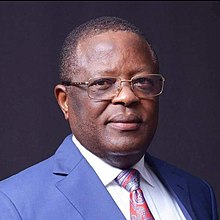
By Chimezie Godfrey
The Electoral Forum an initiative of the Electoral Hub has frowned at the Senate’s decision to restrict parties to conducting direct primaries.
This was made known in a statement issued and signed by the Chairman of the Forum, Prof. Adebayo Olukoshi, at the conclusion of the Second Technical Meeting of the Electoral Forum with the theme,“Constitutional and Statutory Framework for Elections in Nigeria since 1960”.
Prof. Olukoshi noted that the Electoral Hub pools resource persons from electoral management bodies (EMBs) together with other electoral stakeholders to conceptualise solutions to the unique problems facing electoral governance in Nigeria by addressing both the supply (EMBs) and demand (CSOs etc.) sides of electoral services.
He said the project is supported by the Open Society Initiative for West Africa (OSIWA).
According to him, during the technical session, Forum members reviewed extensively the laws that established the various electoral commissions in Nigeria since 1960, the powers that have been given to them, the elections they conducted, and the significant impact they have had on the electoral process.
He added that having reviewed this historical legal framework, Forum members proceeded to discuss the current electoral legal landscape.
Speaking on the Senate amendments to the Electoral Bill on 12 October 2021, Prof Olukoshi stated that members expressed joy that some of the issues recommended by the Forum during its inaugural meeting were addressed.
These include empowering the Independent National Electoral Commission (INEC) to determine the mode of results transmission, as well as making it mandatory for the Commission to monitor party primaries.
He however, revealed that members of the Forum were concerned about the decision of the Senate to restrict political parties to conducting direct primaries, adding that this will still allow room for manipulations during party primaries.
They therefore advised that INEC should have certified list of delegates or party members, which they can use to effectively monitor the primaries.
“Nevertheless, Forum members expressed concern about the Senate’s decision to restrict parties to conducting direct primaries.
“They posited that rather than requiring parties to conduct one form of primaries, it is more important to have a certified list of delegates or party members, as the case may be, which INEC can use to effectively monitor the primaries.
“According to Forum members, without this tool made available to INEC, there will still be underhand dealings during party primaries, whether direct or indirect,” he stated.
He further stated that it was highlighted that while the Senate has amended some of the pressing issues in the Bill, they have failed to tackle other equally important issues which were highlighted during the Forum’s inaugural meeting, particularly the clause on campaign finance.
He added that the need to sieve those clauses out so that the euphoria of amendment will not make them forget those ones that were not amended, was equally pointed out by a member of the Forum.
According to him, also on the agenda of the meeting was identifying further areas of electoral reform.
“Forum members made recommendations on various areas, including cross carpeting, timelines for by-elections, party primaries, campaign finance, quotas for women and persons with disabilities, adjudication of pre-election cases, registration and deregistration of parties, mode of appointment of INEC members, and unbundling INEC.
“These recommendations will be used to produce outputs such as policy briefs, advocacy asks and infographics, to be released on the Forum page: https://electoralhub.iriad.org/electoralforum. Stakeholders in the electoral process are urged to join the Forum in the advocacy for better electoral governance in Nigeria,” Prof. Olukoshi stated.
The Director of the Electoral Hub, Ms. Princess Hamman-Obels, in her opening remarks, outlined the objectives of the meeting which she said included,”To explore the history of electoral legislation in Nigeria,to identify key issues in the electoral legislation since 1960, to suggest further areas that require electoral reform in Nigeria, and to propose strategies for engagement with NASS, INEC, and the public.



